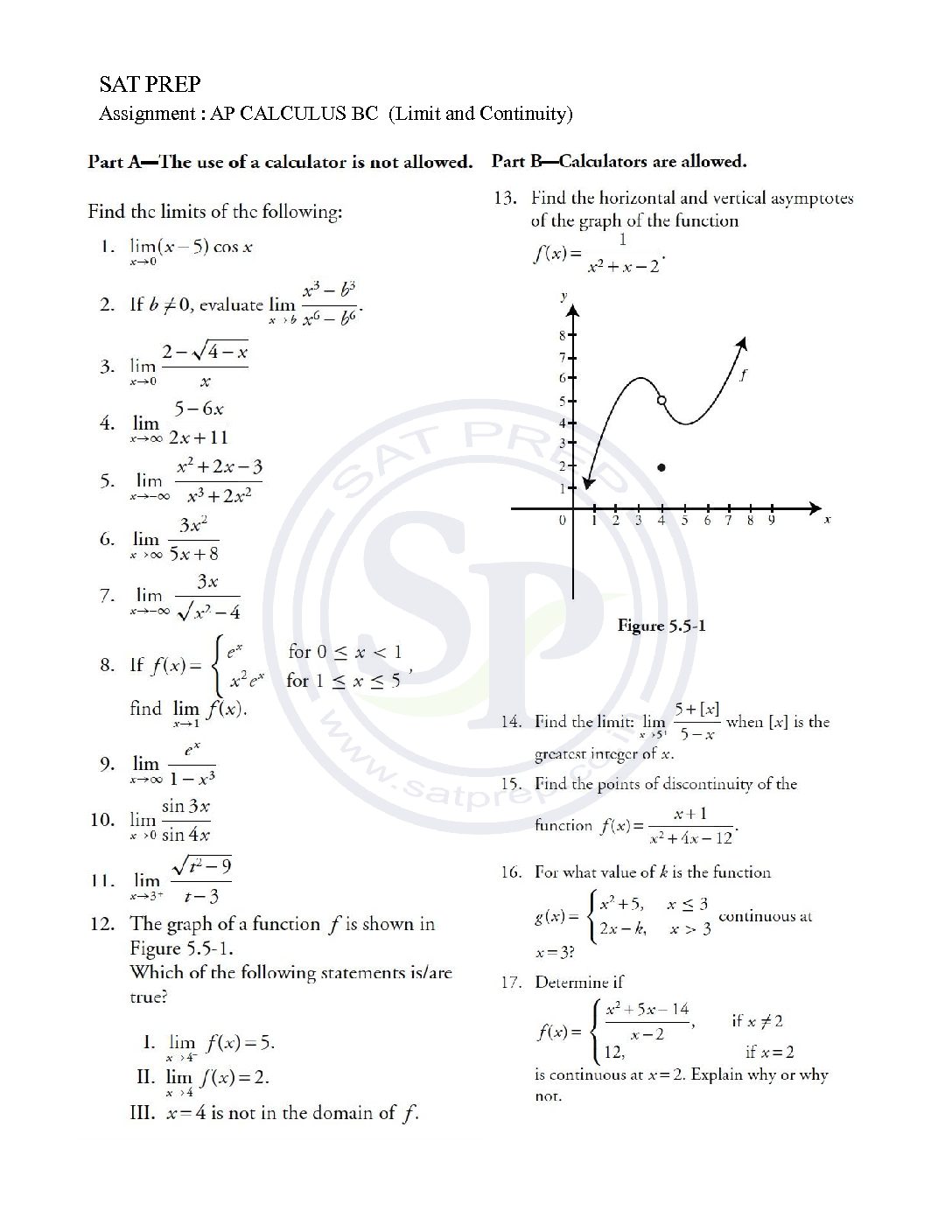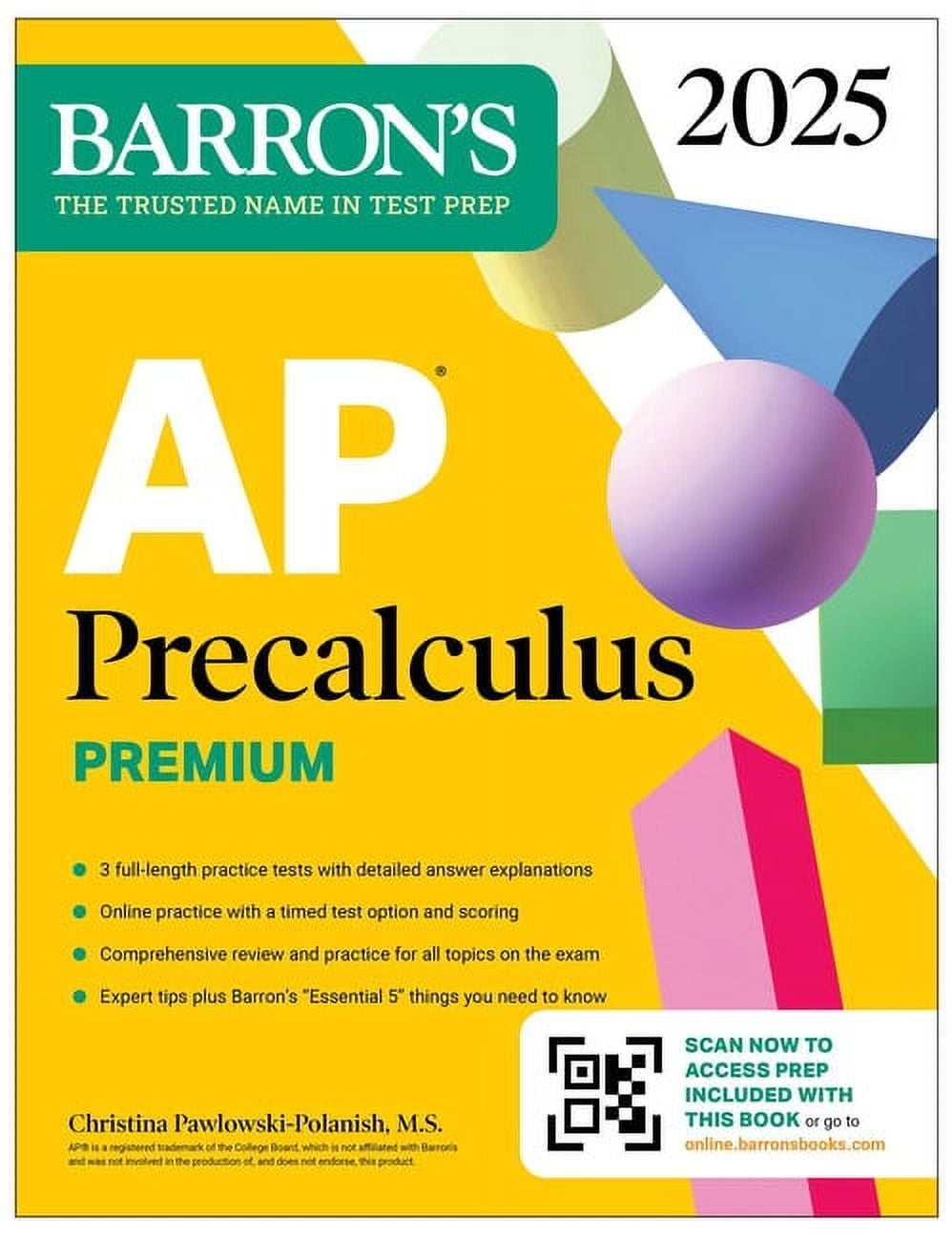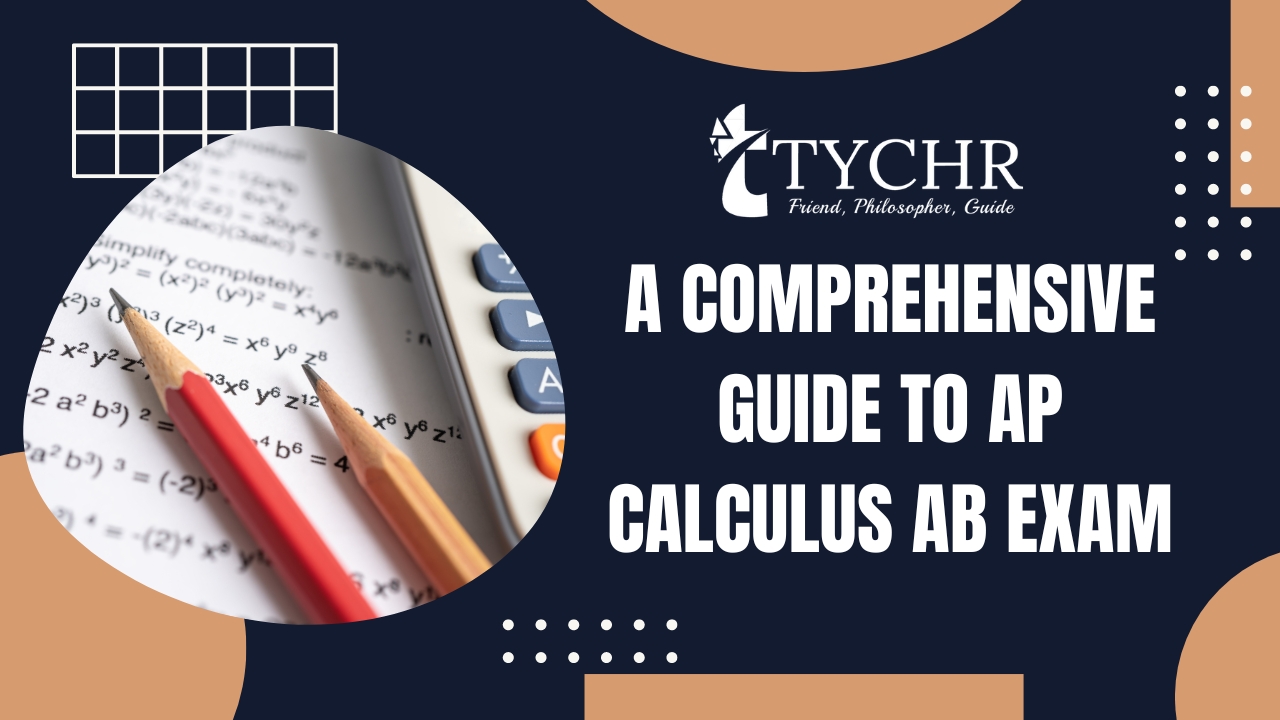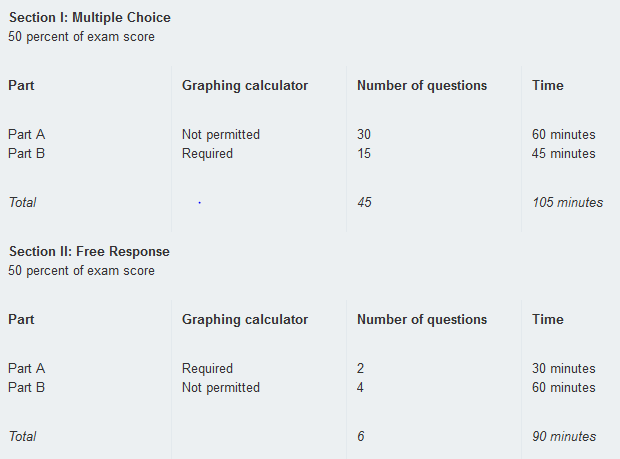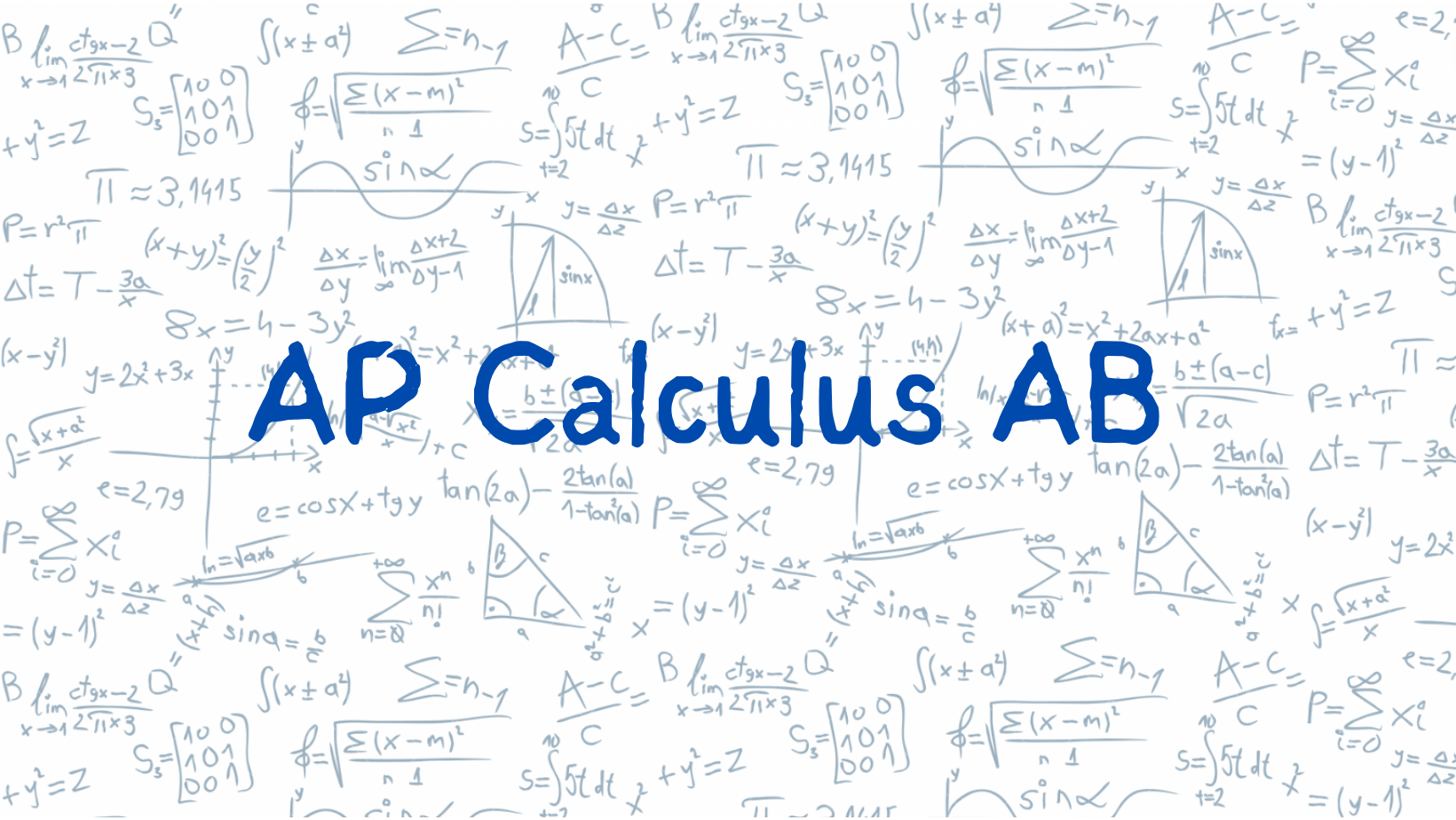
Navigating the 2025 AP Calculus Exams: A Comprehensive Guide
The AP Calculus exams, both AB and BC, are pivotal milestones in the academic journey of countless high school students. These rigorous exams offer college credit and demonstrate a strong foundation in calculus, opening doors to higher education and diverse career paths. As the 2025 exam season approaches, it’s crucial for students to understand the exam schedule, format, and preparation strategies to maximize their chances of success.
The 2025 AP Calculus Exam Schedule: Key Dates and Deadlines
AP Calculus AB and BC Exams:
- Exam Dates: Tuesday, May 6, 2025 (afternoon administration)
- Exam Time: 12:00 PM – 3:15 PM (Local Time)
- Exam Format: Two sections – Multiple Choice and Free Response
- Registration Deadline: Check with your school or the College Board for the specific registration deadline.
Navigating the Exam Structure: A Breakdown of Sections
The AP Calculus exams are designed to assess a student’s understanding of calculus concepts and their ability to apply those concepts to solve problems. The exam is divided into two sections:
Section I: Multiple Choice (60% of the exam score)
- Part A: 30 multiple-choice questions (55 minutes) – No calculator allowed.
- Part B: 15 multiple-choice questions (50 minutes) – Calculator allowed.
Section II: Free Response (40% of the exam score)
- 6 Free Response Questions (90 minutes) – Calculator allowed for the first two questions, calculator not allowed for the remaining four questions.
Understanding the Exam Content: A Detailed Outline
AP Calculus AB
The AP Calculus AB exam covers the following topics:
1. Functions and Their Graphs:
- Understanding functions and their properties
- Analyzing graphs of functions
- Transformations of functions
- Inverse functions
- Piecewise-defined functions
2. Limits and Continuity:
- Definition and properties of limits
- Evaluating limits using algebraic techniques and graphs
- Continuity and its properties
- Intermediate Value Theorem
3. Derivatives:
- Definition of the derivative
- Rules of differentiation (power rule, product rule, quotient rule, chain rule)
- Implicit differentiation
- Derivatives of inverse functions
- Related rates
- Optimization problems
- Linear approximation
4. Integrals:
- Definition of the definite integral
- Fundamental Theorem of Calculus
- Techniques of integration (substitution, integration by parts)
- Applications of integration (area, volume, arc length)
5. Differential Equations:
- Introduction to differential equations
- Solving separable differential equations
- Slope fields
- Euler’s method
AP Calculus BC
The AP Calculus BC exam covers all the topics of the AB exam, plus the following advanced topics:
6. Parametric, Polar, and Vector Functions:
- Parametric equations
- Polar coordinates
- Vector functions
- Calculus with parametric, polar, and vector functions
7. Sequences and Series:
- Sequences and their convergence
- Series and their convergence
- Tests for convergence
- Power series
- Taylor and Maclaurin series
8. Applications of Integration:
- Improper integrals
- Applications of integration (work, average value, probability)
Preparing for the Exam: A Comprehensive Strategy
1. Master the Fundamentals:
- Strong Algebra Foundation: A solid understanding of algebra is essential for success in calculus. Review key concepts like factoring, solving equations, and working with exponents.
- Trigonometry Proficiency: Trigonometry plays a significant role in calculus, especially in derivatives and integrals. Brush up on trigonometric identities, graphs, and unit circle concepts.
- Pre-Calculus Review: Familiarize yourself with pre-calculus topics like functions, graphs, limits, and derivatives.
2. Embrace Active Learning:
- Engage in Class: Participate actively in class discussions, ask questions, and take thorough notes.
- Practice Problems Regularly: Solve numerous practice problems from textbooks, online resources, and past exam papers.
- Seek Help When Needed: Don’t hesitate to seek help from your teacher, tutor, or study group if you encounter difficulties.
3. Utilize Resources Wisely:
- Textbooks and Study Guides: Refer to your textbook and use supplementary study guides to reinforce your understanding of key concepts.
- Online Resources: Explore online resources like Khan Academy, Wolfram Alpha, and YouTube channels dedicated to calculus.
- Practice Exams: Take practice exams under timed conditions to simulate the actual exam environment and identify areas for improvement.
4. Develop Effective Study Habits:
- Create a Study Schedule: Allocate dedicated time for studying calculus each day or week.
- Break Down Content: Divide the syllabus into manageable chunks and focus on one topic at a time.
- Review Regularly: Regularly review previously learned concepts to reinforce your understanding.
- Prioritize Weak Areas: Identify areas where you need more practice and allocate extra time to those topics.
5. Calculator Strategies:
- Calculator Proficiency: Become familiar with the functionalities of your graphing calculator, especially for solving equations, graphing functions, and performing calculations.
- Calculator-Specific Practice: Practice solving problems using your calculator to ensure efficiency and accuracy during the exam.
- Calculator Restrictions: Be aware of the specific calculator restrictions outlined by the College Board.
6. Exam Day Tips:
- Get Adequate Rest: Ensure a good night’s sleep before the exam to maximize focus and concentration.
- Eat a Healthy Breakfast: Fuel your brain with a nutritious breakfast to maintain energy levels.
- Arrive Early: Arrive at the exam venue well in advance to avoid any last-minute rush or stress.
- Read Instructions Carefully: Pay close attention to all exam instructions and guidelines.
- Pace Yourself: Allocate time wisely for each section and question to avoid rushing or leaving questions unanswered.
- Show Your Work: For free response questions, show all your work clearly and logically to demonstrate your understanding.
Conclusion:
The AP Calculus exams are challenging but rewarding. With a structured approach, dedicated effort, and effective preparation strategies, students can confidently navigate these exams and achieve success. Remember, mastering calculus is not just about memorizing formulas but about developing a deep understanding of the concepts and their applications. By embracing active learning, utilizing available resources, and practicing consistently, students can build a strong foundation in calculus that will serve them well in their academic and professional pursuits.

